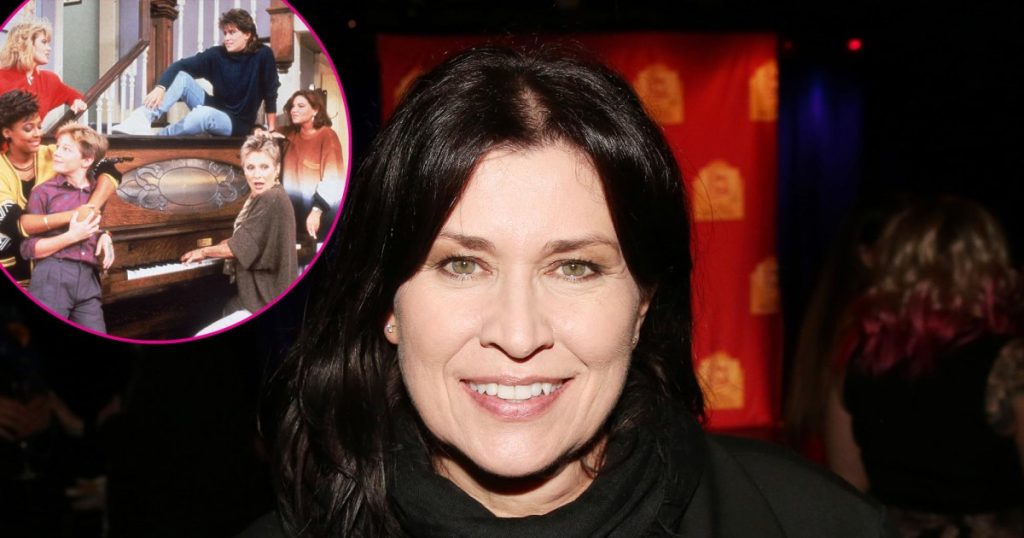The iconic sitcom “The Facts of Life,” a spin-off of “Diff’rent Strokes,” captivated audiences from 1979 to 1988 with its portrayal of adolescent girls navigating the trials and tribulations of boarding school life at Eastland School for Young Women. While the show tackled relatable themes of puberty, friendship, and personal growth, a behind-the-scenes struggle emerged regarding the young actresses’ weight and body image. Nancy McKeon, who played the spirited tomboy Jo Polniaczek, recently revealed the intense pressure placed upon the cast to conform to specific body ideals, sparking a conversation about the entertainment industry’s historical obsession with appearances and its impact on young performers. McKeon’s revelations shed light on a darker side of the beloved series, prompting reflection on the changing landscape of body image acceptance and the evolution of societal attitudes towards diverse body types.
McKeon recounted the pervasive focus on the cast’s weight, highlighting the frequent discussions about diets and ideal weight goals. Though she refrained from divulging specific comments, the implication was clear: the actresses felt scrutinized and pressured to maintain a certain physique. This pressure, McKeon argued, ironically contradicted the show’s very premise, which centered on the natural developmental changes young women experience during puberty. She emphasized the incongruity of highlighting these transformative years while simultaneously imposing unrealistic body expectations on the actresses embodying these experiences. McKeon’s reflections expose a double standard within the industry, where the portrayal of natural growth is championed on screen while behind the scenes, actors are subjected to intense pressure to conform to narrow aesthetic standards.
This pressure to conform, as McKeon pointed out, extended beyond mere aesthetic concerns. It delved into the complexities of the entertainment industry as a business, where actors are often treated as commodities rather than individuals. The demand for a specific “look” often overshadowed the actresses’ personal development and well-being. McKeon’s experience underscores a broader issue within Hollywood, where the pursuit of profits and marketable images can sometimes eclipse the humane treatment of performers. This “business-first” mentality can create a challenging environment, particularly for young actors who are still developing their sense of self and navigating the pressures of adolescence.
Lisa Whelchel, who portrayed the preppy and stylish Blair Warner, further corroborated McKeon’s claims, revealing even more disturbing details about the pressure she faced. Whelchel disclosed that producers repeatedly encouraged her to attend a “fat farm” during the show’s hiatus, highlighting the extreme lengths to which the show’s creators were willing to go to control the actresses’ bodies. The term “fat farm,” with its negative connotations and association with restrictive dieting practices, underscores the unhealthy environment surrounding weight and body image within the show’s production. Whelchel’s experience exposes the potentially harmful impact of such pressure on young performers, who may internalize these messages and develop unhealthy relationships with their bodies.
Whelchel, reflecting on her experiences decades later, acknowledges the shift in societal attitudes towards body image. She expressed gratitude for the growing body positivity movement, recognizing the progress made in challenging unrealistic beauty standards. However, she also acknowledged that body image issues remain prevalent, highlighting the ongoing struggle for acceptance and representation of diverse body types. Whelchel’s perspective underscores the slow but significant progress made in challenging societal norms and embracing a broader spectrum of beauty. Her comments also emphasize the continuing need for greater inclusivity and representation in the entertainment industry.
Whelchel’s reflections on her time on “The Facts of Life” are poignant and revealing, offering a glimpse into the internal struggles she faced while navigating the pressures of adolescence in the public eye. She candidly admitted to emotional eating, a common coping mechanism for teenagers, particularly during periods of stress and change. The confluence of puberty, her parents’ divorce, and the geographical separation from her family created a challenging emotional landscape for Whelchel, exacerbating the pressure she felt to conform to the show’s body image expectations. Her experience underscores the vulnerability of young performers and the importance of providing support and understanding during these formative years. Whelchel’s story serves as a reminder of the human cost of the entertainment industry’s obsession with image and the need for greater empathy and compassion in treating young actors. Her concluding remarks, referencing Maya Angelou’s wisdom about learning and growing, underscore the importance of acknowledging past mistakes and striving to do better in the future.

